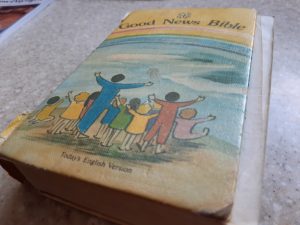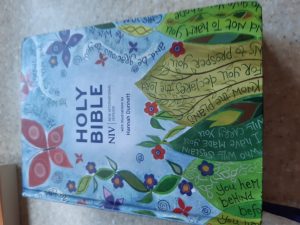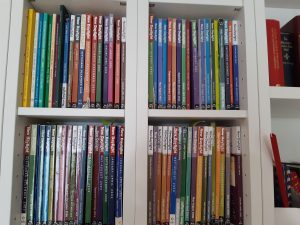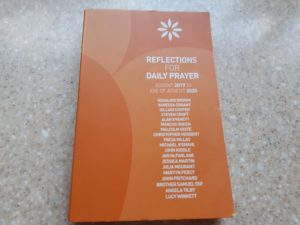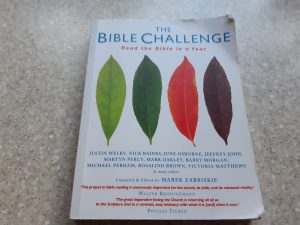Video Reflection is found: – https://youtu.be/CkLlYXYJ41c
1 John 3;1-3, Matthew 5:1-12
In the name of the Father, the Son and the Holy Spirit Amen
Our gospel today is the start of the first big block of teaching from Jesus in Matthew’s gospel. These are words from one of the earliest times in his ministry that Jesus shared his teaching. It is a teaching from a mountain, which to the people of his day would have been indicative that this was important. For the gospel writer Matthew links with the Old testament are crucial. We will remember many things that happened on mountain tops in the journey of the people of God and particularly of Moses! But not exclusively him! This mountain top location gives more gravitas and authority to these words of Jesus. Jesus positions himself for maximum accessibility, so the crowd and his disciples can hear what he has to say
Jesus started in a very interesting way with a passage of scripture we have come to call the beatitudes. A beatitude is a description and commendation for a good life. If you like
“Jesus is offering and inviting his hearers into a way of being in the world that will result in their true and full flourishing now and in the age to come” (Pennington)
The beatitude statements have two parts. They address a lived experience in our lives. Some positive like being pure in heart, being merciful and seeking peace. Some are aimed at more troubling times like persecution or mourning or low mood and then a promise or an encouragement based on God’s kingdom values and not more earthly values. A simple way to understand them is as ways to be ‘be attitudes’. Attitudes which help us to be. Ways of being a human well.
I did some work with some 9-10 year olds on these statements a while ago and asked them to explain what they thought these statements meant in their own words. How they were things that could be and attitudes to life they had. For example, based on blessed are the peacemakers for they will be called children of God. One of the wise children said – I think this means that you not only live in peace but bring peace to others. Children can be very much wiser than their years!!!
Now to get abit more technical – these things are macarisms (though this might sound like some wisdom of Paul Mccartney) – It isn’t! This is based on the first word of each statement in the original language Makarios. Getting technical – A macarism is a pronouncement based on an observation that a certain way of being in the world produces human flourishing and well being. It was a common way of teaching and ancient tradition in jewish sages – offering practical wisdom on how to live in accordance with God’s plan. This way of speaking is not so common today.
All this makes these our beatitudes a series of promises and challenges we need to take note of. The added complication here is that they are also speaking into the difficult times the followers of Jesus were experiencing. At the time Matthew wrote this gospel things were tough and persecution an every day threat for these Christians. At that level they are also speaking to us in difficult times.
The beatitudes offer a radical vision of the people of God. A redefinition – setting the scene for the new way Jesus was bringing. On the one hand they are wisdom based statements and on the other they have a forward looking element – All this reflects the now and not yetness of the kingdom of God – and that phrase the kingdom of heaven crops up a couple of times in different ones! This is all about how fortunes will be reversed in God’s economy (the upside down topsy turvey messages common in Matthew’s gospel). There is an element of living wisely now and a good promised future from God will come.
The fundamental difficulty with understanding for us is how to translate the first word, which in the Bible we use is translated as blessed. This is abit awkward as we associate that word with God’s positive intervention. If we are not careful this can come across that God has made it so we are poor in spirit, mourning etc, but it doesn’t really mean that. Difficult times come along for the best of us. Don’t we know that in 2020!!! God has not made it so for us – on occasions it is about our own poor choices. Sometimes it is just how it is. We cannot make life all roses and apple pie! In any case God does not work in this tit for tat way but walks with us in the difficult times and works in us by his grace and spirit
Another unsatisfactory option is to translate the first word as Happy – which The Good News bible does. Though that might work with the more positive circumstances and statements – It clearly doesn’t work for the ones addressing difficult times. In deep mourning or low mood happiness though not impossible, is usually pretty suppressed in my experience!
These statements are really not to do with the pursuit of happiness or with fortunate external circumstances. The fascinating commentary I read by Jonathan Pennington said that we would understand the beatitudes better (and their original intent) if we translated the first word as flourishing. How God’s spirit can work in our lives in everything that comes along (good and difficult). This fits with the promises God has for us – the now and not yetness of our walk in God’s kingdom now but more fully in God’s kingdom when we die or when Jesus returns.
For example – Flourishing are the peacemakers for they will be called the children of God – sounds ok. Unpacking that a little more in mourning and hard times our lived experience of God’s love in our hearts can grow. That sense of God’s comfort can be most tangible. In seeking peace (even when that is difficult) God’s love in our hearts can grow. Probably we can all recognise difficult times where we have lent into our faith and drawn great strength from it and grown despite and even through the difficulties. In the upside down topsy turvey of the gospel message of Jesus, this is about seeing ways through to our flourishing in what comes along (because life does have ups and downs).
In a way Jesus in these opening words is giving a vision of a way of being in the world that will result in our flourishing, acknowledging our growth and development in the good and the bad times of our lives. In all the words we have heard today – we are hearing Jesus call out to us. To follow him in ways that will lead to our flourishing and the flourishing of others (no matter what comes along). It is a clear reminder as the saints today to hear Jesus call out to us to follow him in ways that will lead to our flourishing and the flourishing of others (no matter what comes along)
End with one of 2 well known prayers from St Teresa of Avila
Let nothing disturb you,
Let nothing frighten you.
All things pass away:
God never changes.
Patience obtains all things.
Those who know God lack nothing:
God alone suffices. Amen
RESOURCES:
https://www.churchofengland.org/our-faith/living-out-our-faith/beatitudes
The New Revised Standard Version (Anglicized Edition), copyright 1989, 1995
The sermon on the mount and human flourishing – Jonathan Pennington

